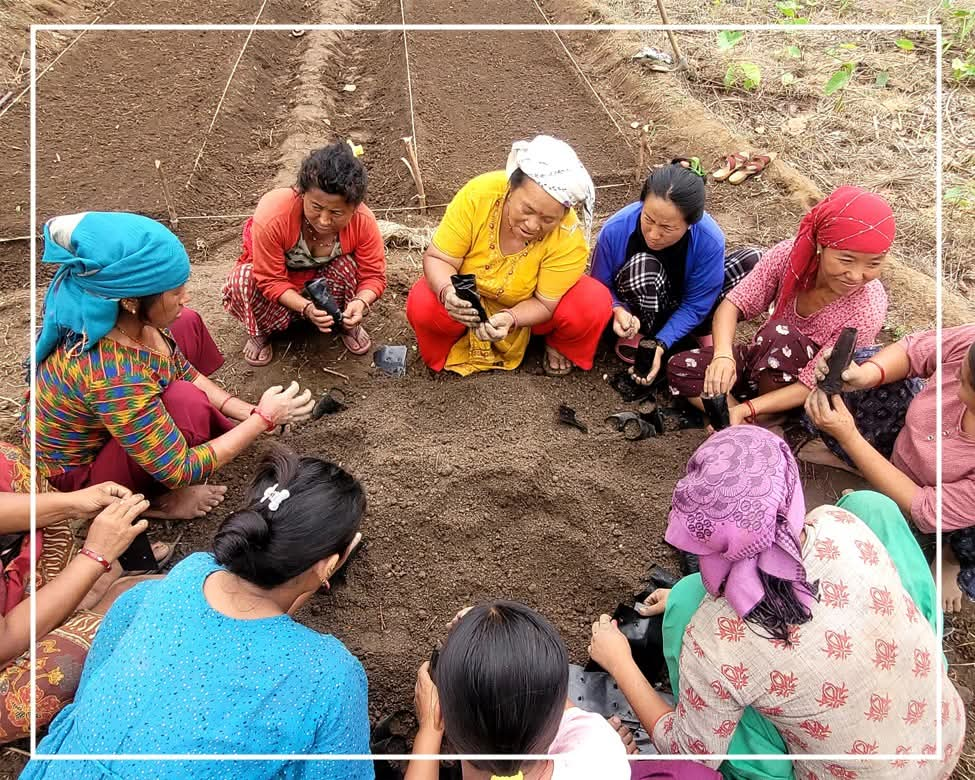Kathmandu, Nepal - Caritas Nepal, in collaboration with Caritas Spain and CDM Nepal, is transforming the agricultural landscape in disaster-prone regions of Nepal. Through the UDRR Project (Urban Disaster Risk Reduction), the initiative is equipping vulnerable farmer groups with essential skills, resources, and strategies to build sustainable livelihoods while adapting to the challenges posed by climate change.
Key Interventions
1. Capacity Building: Farmers are receiving practical training in nursery management, off-season vegetable farming, and climate-smart agricultural practices. These techniques ensure better yield and minimize risks associated with unpredictable weather patterns.
2. Access to Resources: Agricultural inputs such as seeds, tools, and fertilizers are being distributed, enabling farmers to implement sustainable farming methods effectively.
3. Market Integration: With enhanced production, farmers are now harvesting and selling their produce, creating new income streams that strengthen community resilience.
Broader Impacts
This initiative isn’t just about farming; it’s a holistic approach to empowering communities to thrive amid adversity. By promoting climate adaptation and food security, Caritas Nepal is fostering long-term resilience against disasters. The program serves as a model for sustainable agriculture and inclusive development in Nepal’s rural areas.
Moving Forward
The success of this project highlights the potential of community-driven solutions to address global challenges like climate change and food insecurity. With sustained support and partnerships, similar initiatives can be replicated across vulnerable regions, ensuring that resilience and hope become a shared reality.